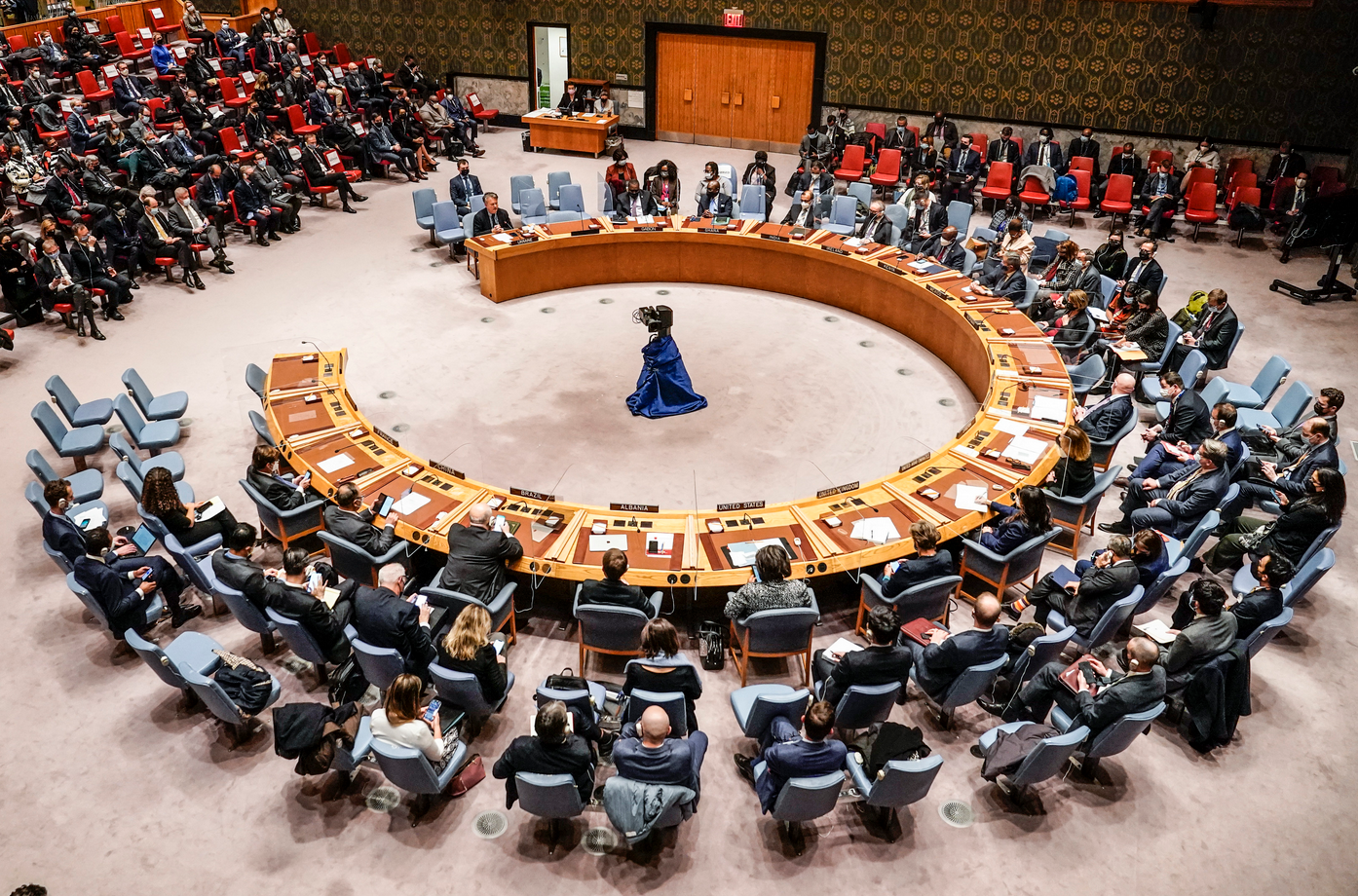The United Nations’ Security Council goal was to ensure the collective security of humanity. Seventy years after its creation the five-member council needs a massive shakeup if it is to address today’s challenges argues Hassan Nafaa, professor of Political Science at Cairo University. More than seven decades have passed since the United Nations was established to maintain international peace and security. Since then, the world’s political and social landscapes have changed dramatically. Threats have shifted from armed conflicts between states to climate change and pandemics. Maintaining peace and security require a new vision and governance. The UN Security Council is outdated and must undergo deep reforms to ensure the collective security of humanity as whole
Topics:
Swissinfo considers the following as important: 3.) Swissinfo Business and Economy, 3) Swiss Markets and News, Featured, newsletter
This could be interesting, too:
Nachrichten Ticker - www.finanzen.ch writes Die Performance der Kryptowährungen in KW 9: Das hat sich bei Bitcoin, Ether & Co. getan
Nachrichten Ticker - www.finanzen.ch writes Wer verbirgt sich hinter der Ethereum-Technologie?
Martin Hartmann writes Eine Analyse nach den Lehren von Milton Friedman
Marc Chandler writes March 2025 Monthly
The United Nations’ Security Council goal was to ensure the collective security of humanity. Seventy years after its creation the five-member council needs a massive shakeup if it is to address today’s challenges argues Hassan Nafaa, professor of Political Science at Cairo University.
More than seven decades have passed since the United Nations was established to maintain international peace and security. Since then, the world’s political and social landscapes have changed dramatically. Threats have shifted from armed conflicts between states to climate change and pandemics.
Maintaining peace and security require a new vision and governance. The UN Security Council is outdated and must undergo deep reforms to ensure the collective security of humanity as whole and not just States as it was set up to do.
What Changed?
The post-World War II world was divided into three fronts: the defeated Axis powers (including Japan and Germany), victorious Allies (namely the United States, United Kingdom and USSR) and the colonised states and territories which included much of the African and Asian continents. Since, the lines have shifted. Some of the then-defeated States are now major world powers, demanding permanent seats on the Security Council such as Japan and Germany. The previously colonised territories are now independent states and members of the United Nations.
Furthermore, international peace and security threats are no longer limited to interstate armed conflicts. Civil wars, environmental issues, and poverty are just as serious threats to peace
Today the victims of infectious diseases and organised crime outnumber victims of armed conflicts.
Despite that, the United Nations has made no significant changes to its Charter or governance. It has proved unable to keep pace with the global developments and is no longer fit to lead the world order.
Matters of Reform
Today’s world needs an inclusive, proactive, and accountable collective security system. The Security Council, the only body responsible for collective security, lacks all these qualities.
It consists of five permanent seats, two of which are held by Western European countries, while leaving out entire continents and world powers. They have near absolute power, including the ability to veto a resolution from being passed even if all other 14 countries – which include 10 non-permanent members of the Security Council– vote in favour of it.
The Council meets on an ad-hoc basis when conflicts threaten to mount into interstate armed battles. In other situations, such as global pandemics, famines, human rights violations, or actions that threaten the global economy, the Council cannot take the lead. The world needs an active mechanism that meets periodically to confront all these threats to international peace and security.
It enjoys supreme power and appears to be an absolute dictator. Its practises are subject to no political or judicial oversight. A Security Council that is politically controlled by the UN General Assembly and legally controlled by the International Court of Justice is needed.
Is reform possible?
In theory, I believe most UN state members would support a refresh of the UN Charter and Security Council. However, passing reforms requires a unanimous endorsement of the current five permanent members of the UNSC, which is hard to achieve in the current political climate, especially after the outbreak of the war in Ukraine. Therefore, the world has two options: to keep the United Nations in its current imperfect state or to establish an alternative organisation.
Throughout history, world powers collectively realised and acted on the need to have a peace and security safeguarding body. The first was after World War I, when the League of Nations was established. The second was after World War II, when the United Nations was established. I can only hope that world leaders will work for a new and effective global organisation before the world throws itself into a third mass suicide of humankind.
Tags: Featured,newsletter

